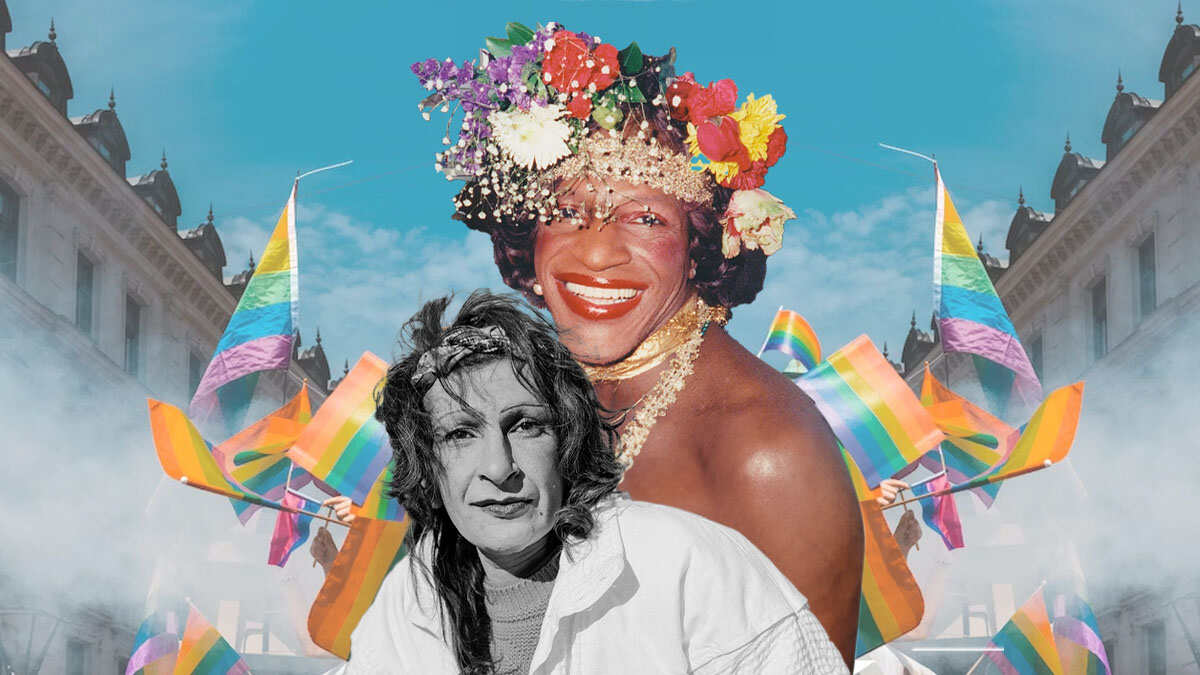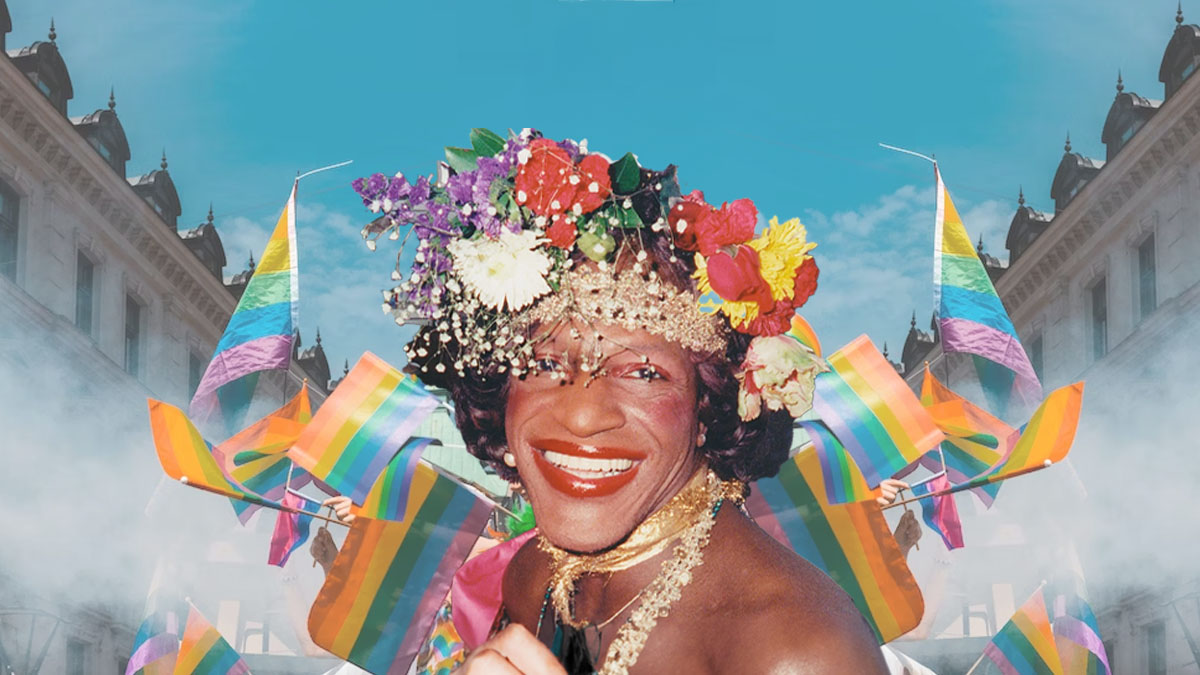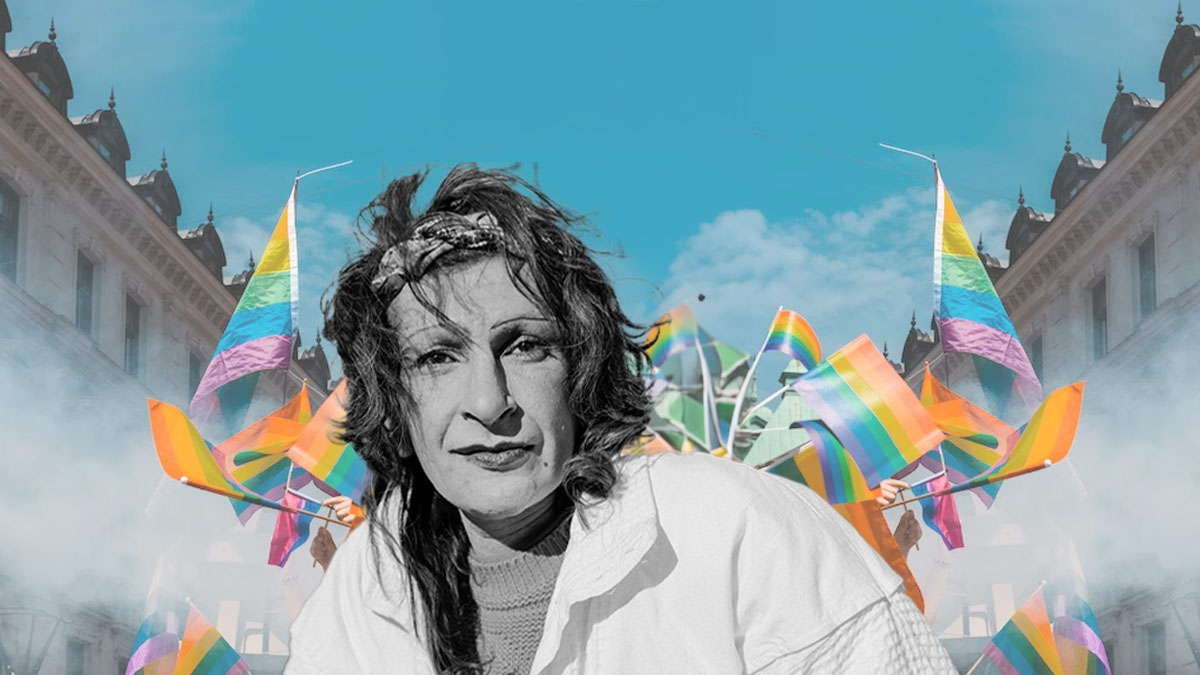
Every year, we celebrate June as Pride Month to take forward the conversation on the rights of the LGBTQ+ community. It is a reminder of the struggles queer people have been experiencing for centuries.
Whenever we talk about any movement, whether it is the independence struggle of a country or the rights of a community, women are hardly mentioned. Similar is the case with the Pride Movement. While many activists contributed to the Pride Movement, there are two trans-women who shaped it as we know it today.
They were - Marsha P. Johnson and Sylvia Rivera. They were queer, unapologetic about their identities, and lived their life unabashedly. Together they founded Street Transvestite Action Revolutionaries (STAR).
In our weekly series, Women of History, we talk about personalities who have done so much for our society, fought for the rights of women and communities, and shaped the world in which we live. This article is an ode to Johnson and Rivera and their bravery.

Marsha P. Johnson was born in 1945 in New Jersey. She was born Malcolm Michaels Jr. Her father was an assembly line worker, and her mother was a housekeeper. She had six siblings and got married when she was only 16.
At the age of five, she started wearing dresses but backed out because neighbourhood boys picked on her and harassed her. In a 1992 interview, she said she was a survivor of rape by a 13-year-old boy. It almost made her give up on the idea of being gay. Brought up in a conservative family, Johnson left for New York when she was only 17.
In 1966, she lived on the streets and earned her living by indulging in survival sex. She performed drag that is reported to be comedic and political at the grass root level. There are only a few clips of her performing a glamorous drag on a stage.
Stonewall Inn was a bar that only allowed gay men to enter. However, when it opened its gates for women and drag queens, Johnson was the first one to enter its premise. The uprising of Stonewall refers to the riots that started the gay revolution. Johnson was among three names who started the uprising in 1969, however, she denied the allegations in 1987.
After the Stonewall Uprising, she joined the Gay Liberation Front and was an active member of the GLF Drag Queen Caucus. In June 1970, she proudly marched in the first Gay Pride parade. A short time after this, she co-founded STAR with Rivera. They helped homeless queer people and advocated for their rights.
Johnson was a black trans-woman who held the pride flag high in New York for over 25 years.
Everyone loved Johanson at the STAR House. She was their ‘drag mother’ who worked relentlessly to provide for trans women, drag queens, gay, and gender nonconformists who were a part of STAR House.
Don't Miss: Taking A Stand: How To Be An Effective LGBTQ Ally
Between 1980 and 1992, Johnson lived with Randy Wicker, an American activist, who invited her into his home for a freezing night. She became the caregiver of Wicker’s lover when he tested positive for AIDS and became terminally ill.
Johnson was also HIV-positive and committed herself to helping her friends in need. She used to help sick people and indulged in street activitism with groups that aimed at spreading awareness about AIDS.
In 1992, gay bashing took over the entire New York City, and there were reports of hate crimes against people who identified with the community. Around this time, Johnson was participating in rallies to demand justice on behalf of her friends and the community. A few weeks after her participation, she was found dead. Though her death was announced as suicide, it was never investigated. Many activists believe she was murdered by anti-LGBTQ+ people.
Don't Miss: Transgender Laws In India, Here's An Explainer

Born in 1951 in New York, Sylvia Rivera was a transgender rights and gay liberation activist. Her father abandoned her when she was a toddler, and her mother died by suicide. At the age of three, River became an orphan.
She was raised by her grandmother who would reportedly beat her for ‘feminine’ interests and behaviour. She was only 10 when she left her home and started living on the streets. To earn a living, she had to indulge in survival sex as a child.
Local drag queens, including Johnson, took her under their shelter and protected her. Rivera’s activism began in 1970 when she became an active participant in events organised by the Gay Liberation Front’s Drag Queen Caucus. At the age of 18, she joined the Gay Activists Alliance. She fought for the rights of drag queens to be included in movements organised by gay people. Initially, these movements were only about liberating white and middle-class people from the LGBTQ+ community. Rivera fought for the equality of queer people from marginalised communities.
In 1972, she forcefully entered a pride parade and made her way to the stage to deliver a ‘Y’all Better Quiet Down’ speech. She had an important message about inclusivity for the community that was fighting against being excluded by heterosexual people.
After Johnson’s death, Rivera became homeless. According to reports, she tried to end her life in May 1995. For her entire life, she advocated for gay inmates in prison, drag queens, homeless people, and transgender people. Rivera died in 2002 after losing the battle to liver cancer.
While the legends might not be with us today, their legacy lives on.
Also watch this video
Herzindagi video
Our aim is to provide accurate, safe and expert verified information through our articles and social media handles. The remedies, advice and tips mentioned here are for general information only. Please consult your expert before trying any kind of health, beauty, life hacks or astrology related tips. For any feedback or complaint, contact us at [email protected].